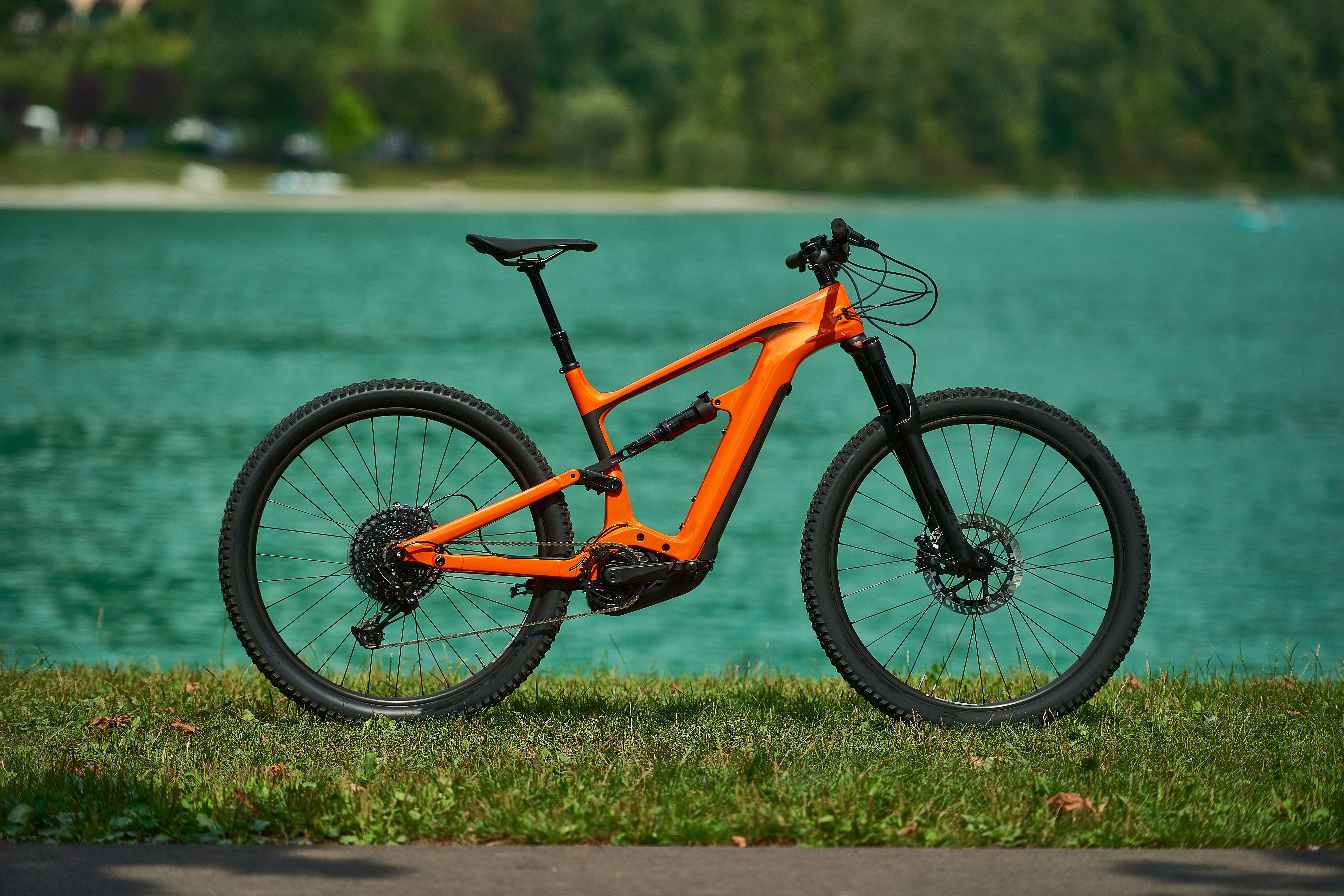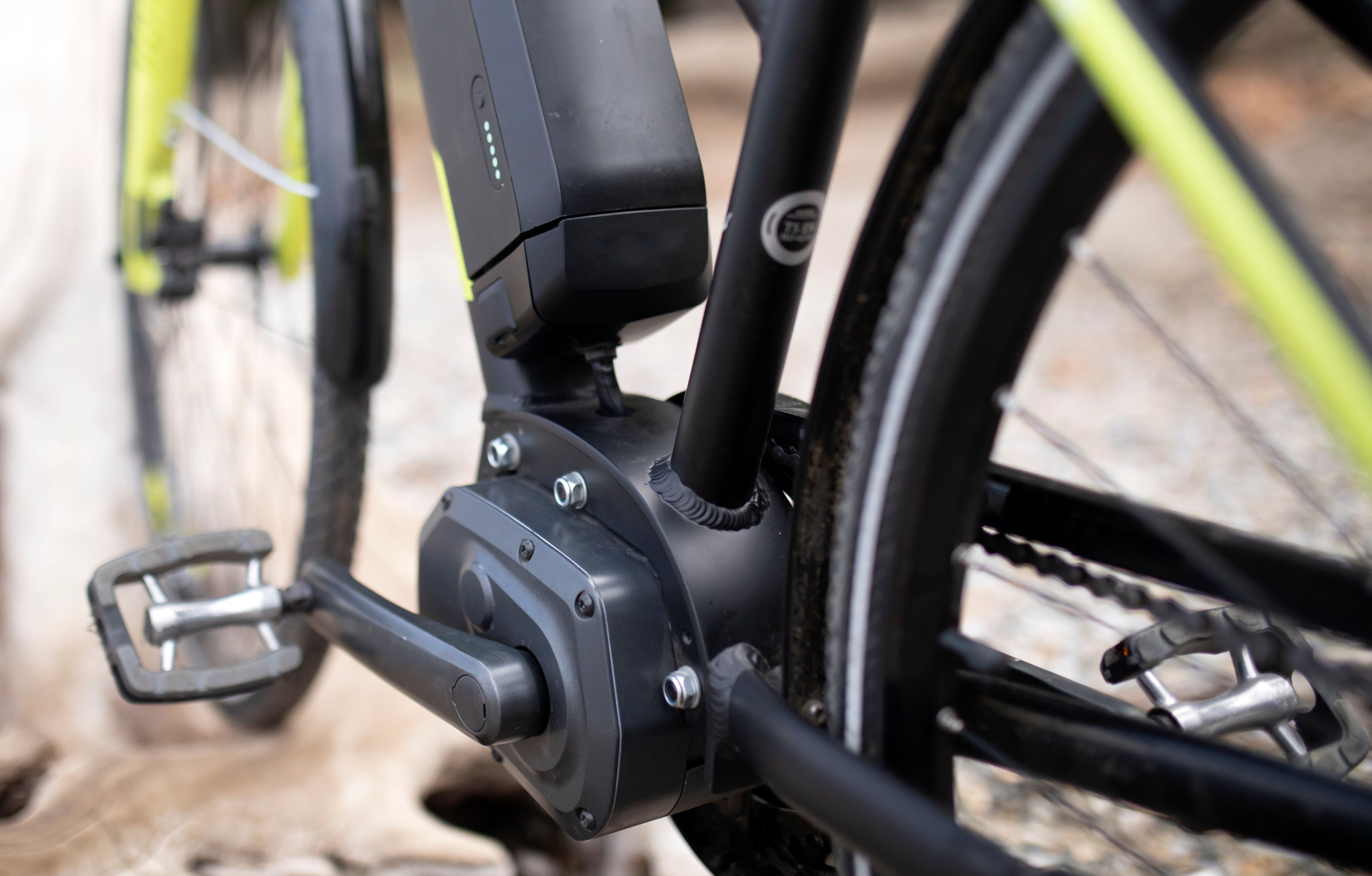
Future Trends in eBike Technology: What's next for Smart Mobility?
May 12, 2025
Take a stroll through any major Western city, and you’ll spot eBikes everywhere—commuters, tourists, and even couriers gliding through traffic on sleek-looking eBikes.
These machines are becoming a staple of urban life, reshaping how people move through cities and contributing to the rise of smart mobility.
This cultural shift is mirrored in the numbers. The global eBike market is now valued at $1.98 billion and is expected to grow by 15.6% by 2030. Behind that growth is a growing preference for low-emission, tech-forward transportation options.
After all, today’s eBikes go far beyond simple pedal assist, with many offering:
- App connectivity
- GPS tracking
- Real-time performance data
Together, these features help make everyday travel smoother and more efficient. So, with all that in mind, what do the latest innovations in eBike technology tell us about the future of smart mobility? Stick with us as we answer that very question:
Current eBike trends driving smart mobility
The eBikes hitting the roads today are a far cry from the early models. Manufacturers are blending engineering with digital intelligence, turning these machines into smart mobility tools built for modern life. Nearly every component is evolving—battery systems, braking, connectivity, and more.
So, what does that look like in practice? Let’s take a closer look at the innovations leading the charge.
Battery technology
Lithium-ion batteries are the most widely used power source for eBikes, and for good reason. Their lightweight design, high energy density, and long lifespan make them ideal for everyday use. As noted by Mordor Intelligence, they continue to lead the market due to their reliable performance and recharge flexibility.
Unlike older battery types, lithium-ion batteries aren’t affected by the "memory effect," a condition where repeated partial charges reduce a battery’s overall capacity. This allows riders to recharge whenever needed without compromising performance or battery lifespan.
Smart features
As we've already hinted at, connectivity is now central to the eBike experience. Features commonly include:
- Bluetooth pairing: Pair your smartphone or wireless accessories with your eBike to unlock a range of features, including hands-free control, fitness app integration, and, in some models, remote locking and unlocking.
- GPS tracking: Built-in location tracking allows riders to plan routes and quickly locate a parked or stolen bike. Some systems even adjust routes in real-time based on traffic or terrain data.
- Ride data apps: Track your speed, distance, trip duration, and remaining battery life in one place. These apps give riders a better understanding of performance and help optimize energy use during longer journeys.
- Diagnostic tools: Many eBikes now include onboard diagnostics that alert riders to system errors, motor issues, and other maintenance needs, reducing the risk of unexpected breakdowns and improving long-term reliability.
Safety features
Safety is no longer an afterthought in eBike design. Today’s models come equipped with intelligent systems that help riders react faster and keep their bikes protected when parked. Let's take a closer look:
- Smart locks with tamper alerts: Help prevent theft by sending instant alerts to your smartphone if someone attempts to move your eBike.
- Adaptive pedal assist: Integrated sensors adjust motor output based on how and where you’re riding, offering smoother acceleration and extra support when needed.
- Automatic braking and blindspot detection: Improve rider awareness and reaction time by detecting nearby obstacles or vehicles and applying braking when necessary.

Future eBike technology trends
While many eBikes on the road today already feature advanced systems, manufacturers aren’t stopping there. The next wave of eBike innovation is pushing into new territory, blending deeper connectivity and AI with better batteries, improved motors, and more sustainable designs.
Let's explore each in turn:
Batteries and motors
Battery life is one of the most important factors shaping the eBike experience. Just like with smartphones or laptops, riders expect long-lasting power that won’t leave them stranded mid-ride. Manufacturers such as Bosch and Giant are leading the way, developing lighter, high-capacity batteries—some as large as 800Wh while weighing just 4kg.
Faster charging, longer range
Battery tech is moving quickly, which is great news for riders who want to go further without waiting around to recharge. More specifically, a couple of next-generation options are already picking up momentum:
Silicon anode batteries can hold more energy without adding bulk, which means longer rides without needing a bigger battery.
Solid-state batteries are another exciting development. They’re still early in the game but promise faster charging and improved safety, which could be a big win for everyday riders.
Then there’s wireless charging, a feature that could change everything for public eBike stations. Imagine rolling your bike onto a charging tile or pad and walking away. No plugs, no waiting; you would just top up and go.
Torque over speed
Since most eBikes are capped by law when it comes to speed and motor power, brands are focusing on what really improves the ride: torque.
That’s the force that helps you pull away from traffic lights and tackle hills without slowing down, giving you that smooth push when you need it most.
Today’s eBikes are getting smarter about how they deliver that power. Better torque sensors can tell how hard you’re pedaling and adjust the motor’s support in real-time so the ride feels more responsive and in tune with you.
Couple this with quieter, lighter motors, and these bikes are becoming ideal for city streets and everyday trips where comfort and control matter more than top speed.
Connectivity
As previously mentioned, most of today's eBikes offer basic ride stats like battery life, speed, and distance on a smart display. However, future models are expected to take connectivity much further, unlocking smarter features for riders and city planners alike.
Here’s what’s coming next:
- Smarter dashboards: Platforms like Cykel Connect will give riders and fleet operators real-time insights into performance, GPS location, maintenance needs, and live speed data on one streamlined interface.
- Smart city integration: As towns and cities invest in safer cycle lanes and charging infrastructure, eBikes could sync with urban systems. For example, real-time traffic alerts, notifications about roadworks, or directions to nearby charging stations delivered through an eBike app.
AI and machine learning
AI isn’t just for robots and self-driving cars anymore. It’s making its way into eBikes, too. Here’s what that looks like in action:
- Adaptive motor control: Learns rider speed and pedaling behavior to adjust motor output in real-time, helping maintain a steady pace, especially on challenging terrain.
- Terrain detection: Assesses road conditions, gravel, and off-road surfaces to optimize settings for efficiency and control.
- Predictive maintenance: Identifies mechanical issues before they cause problems by analyzing vibration patterns, brake wear, and even sound emissions.
- Voice and gesture control: Some manufacturers are already experimenting with voice commands and gesture-based interfaces, with several even integrating ChatGPT for more intuitive, conversational control.
Eco-friendly and sustainable designs
It’s no secret that sustainability is a big reason people choose to ride eBikes. In fact, one study found that as many as 43.9% of riders are motivated by environmental concerns, and we’re already seeing eBikes respond to that shift.
For example, some brands now offer apps that calculate your carbon savings by comparing your eBike trips to equivalent car journeys, helping you see your impact in real time.
Looking ahead, circular design is also likely to become more prominent. This means thinking about what happens to an eBike at the end of its life. Forward-thinking manufacturers are exploring bike parts designed for disassembly and reuse, including modular batteries that can be refurbished or repurposed for other devices.
As regulations around electronic waste tighten globally, these practices will help brands stay ahead and meet growing consumer expectations for accountability.
This mindset shift is driving changes in eBike materials and lifecycle planning, with innovations on the horizon such as:
- More recycled materials: Recycled aluminum and plastics are becoming standard, reducing waste and lowering emissions during production.
- Smarter battery recycling: Expect to see easier, more accessible take-back programs, perhaps even predictive systems that alert you when it’s time to recycle old batteries.
- Recyclable frames: Designers are experimenting with frames that can be fully broken down into recyclable parts.
As environmental pressures mount and consumer awareness grows, eBike manufacturers have a unique opportunity to lead by example by creating rides that are as sustainable as they are smart.
Smarter rides are ahead
Clearly, eBike tech is moving fast and making a real difference in defining the next chapter of smart mobility in our cities.
These days, cycling isn't just about getting from A to B. Instead, smarter batteries, built-in ride tracking, and even AI are helping people get around more easily, especially in busy cities.
However, advanced features alone don't define a great eBike experience. Reliability, user-friendliness, and seamless integration into daily life are equally important. That's where Cykel stands out. Designed with the rider in mind, Cykel offers an intuitive platform that enhances your journey, providing a connected experience that adapts to your needs.
Curious about how Cykel can elevate your ride? Discover what Cykel can do.
Written by
CYKEL Team
May 12, 2025
Last updated: August 5, 2025
Follow our progress and be notified of major updates by signing up to our newsletter.
CYKEL Technologies Inc. acknowledges that we gather and work on the traditional, ancestral and unceded territory of the xʷməθkʷəy̓əm (Musqueam), Sḵwx̱wú7mesh (Squamish), and Sel̓íl̓witulh (Tsleil-Waututh) Nations.
© 2025 Cykel Technologies Inc. All Rights Reserved.